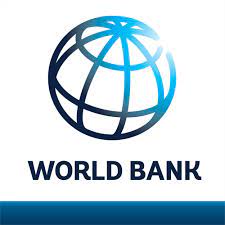The World Bank Group (WBG) and the International Monetary Fund (IMF) must remain engaged, with strong local teams in place, to prevent, mitigate, and build resilience to crises while strengthening institutions, developing quality infrastructure, and partnering with the private sector, according to the Development Committee of the Joint Ministerial Committee of The Board of Governors of the Bank And the Fund on the Transfer of Real Resources To Developing Countries.
The Committee, which met at the recently concluded 2019 World Bank-IMF Annual Meetings in Washington D.C., believes that private sector is crucial to generating jobs and raising living standards. It appreciates the role of the Bank Group, including International Finance Corporation (IFC) and Multilateral Investment Guarantee Agency (MIGA), in continuing to provide upstream advisory services, facilitate and expand investments and create markets by engaging with all clients, while prioritizing the International Development Association (IDA) and Global Value Chains (FCV) countries.
“We support their efforts to build opportunities for private sector solutions while maximizing development impact, including through the upcoming MIGA strategy. We encourage IFC and MIGA to continue to be proactive and innovate to increase private sector investments and support entrepreneurship, including SMEs,” it says.
In view of the strategy to guide context-specific and regional interventions, according to the Committee of the Joint Ministerial Committee of The Board of Governors, of which Mrs. Zainab Shamsuna Ahmed, Minister of Finance, Budget And National Planning, is a member, the Committee looks to the Bank Group’s new FCV strategy that aims to address the drivers of FCV in affected countries, including fragile small island states, and their impact on vulnerable populations. “We also expect the strategy to guide context-specific and regional interventions, policy dialogue, and operational partnerships via country programs and country platforms with key bilateral and multilateral partners, including the United Nations.”
According to the Committee, it is critical that accountability mechanisms for WBG’s projects remain strong and effective, especially as the organisation intensifies its work in more challenging environments. It reiterates the importance of the World Bank Inspection Panel and the IFC and MIGA Compliance Advisor Ombudsman in enhancing development outcomes.
“We agree on the critical role of IDA, the Bank’s fund for the poorest countries, in helping to tackle the most important development challenges facing the global community. We welcome the strong implementation of IDA18 and ask that lessons learned be captured and applied to IDA19. The overall direction of IDA19, with its special themes and cross-cutting issues, represents an ambitious agenda. To deliver on this, we look forward to a successful IDA19 replenishment, with strong support from existing and new donors.”
Ahmed and her colleagues on the Committee have asked IDA to continue to focus on delivering results on the ground through its core financing and dedicated windows, in addition to considering the one-third increase in IMF concessional financing available to low-income countries approved in May 2019, which provides more room for the IMF to support its poorest and most vulnerable members.
Speaking on gender equality, the Committee says gender equality is a priority for the Bank Group, and are encouraged by the implementation of the Bank Group’s gender strategy, reinforced by commitments related to IDA and the capital increase. It says, going forward, it will be critical to further deepen the implementation, and also welcome the enhanced focus given to gender equality issues by the IMF, including its country work.
The Committee commens the progress in implementing International Bank for Reconstruction and Development (IBRD) and IFC capital package and delivering on the forward looking commitments of (i) serving all clients, (ii) leading on global public goods, (iii) creating markets and (iv) continually improving the business and operational model. It urges the IBRD to continue to engage clients across the income spectrum, while prioritising additional financing towards countries below the graduation discussion income, in line with the commitments of the capital package.
Apart from encouraging the Bank Group to help implement country platforms to make better use of development resources and mobilise private sector solutions, the Committee notes that the Bank Group is uniquely placed to address global development challenges, and calls for intensified engagement with clients to advance on the global issues identified in the capital package, namely:- Crisis management and FCV, climate change, gender, knowledge and convening, regional integration, and other specific issues such as energy security, biodiversity, illicit financial flows and pandemics.






